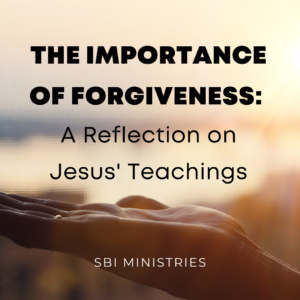The Role of God in Human Suffering

Suffering is an inherent part of the human experience. From the natural disasters that ravage our planet to the personal struggles that we face in our daily lives, pain and hardship are an unfortunate reality. For many, the existence of suffering has led to questions about the role of God in these tragic events. Is God all-powerful, yet powerless to stop suffering? Is God all-knowing, yet uncaring? Or is God neither all-powerful nor all-knowing, leaving us to fend for ourselves in a seemingly cruel world?
If God is all-powerful, then why does evil exist? If God is all-knowing, then why did God not prevent evil from occurring in the first place? And if God is both all-powerful and all-knowing, then why does God allow evil to persist in the world?
These questions have led to various theological and philosophical responses over the centuries. Some have argued that evil is a necessary part of a free will universe, allowing humans to make choices and exercise their moral agency. Others have suggested that evil is a result of humanity’s rebellion against God’s will, or that it is a test of faith and endurance.
Despite these attempts to explain the problem of evil, suffering remains a mystery that continues to trouble many people. Why must innocents suffer? Why do some people experience such profound pain and hardship while others seem to live relatively comfortable lives? The answers are not always clear-cut, and the truth is that suffering can be both senseless and inexplicable.
In this sense, suffering can be seen as a manifestation of the unknown, a reminder that we are not always in control and that there are forces beyond our comprehension at work in the world. This perspective can be both humbling and challenging, as it forces us to confront our own mortality and the limits of our understanding.
While the existence of suffering can be difficult to reconcile with a loving God, it is also possible to find meaning and purpose in the midst of pain. Many people have found comfort in their faith during times of struggle, using their experiences as opportunities for growth and self-reflection.
The biblical concept of “cross-bearing” – carrying one’s cross with humility and faith – suggests that suffering can be a means of surrendering our will to God’s will, trusting that He has a greater purpose at play.
The role of God in human suffering is complex and multifaceted. While the problem of evil may never be fully resolved, it is possible to find meaning and purpose in the midst of pain. By acknowledging the mystery of suffering and seeking comfort in our faith, we can begin to make sense of the world around us.
Ultimately, the question of why God allows suffering is not necessarily a question that can be answered definitively. Instead, it may be more productive to focus on how we respond to suffering – with courage, resilience, and faith – rather than dwelling on its cause.
Apostle Shelia
SBI Ministries
C.B. Helping Hands Ministries
Follow Us
Stay up-to-date with our latest articles and insights by following us on social media:
https://www.facebook.com/CBHelpingHands
This website is a treasure trove of valuable information, and we’re committed to keeping it free for everyone. If our content has made a positive impact on your life, consider supporting us with a donation to help us continue sharing knowledge freely.




